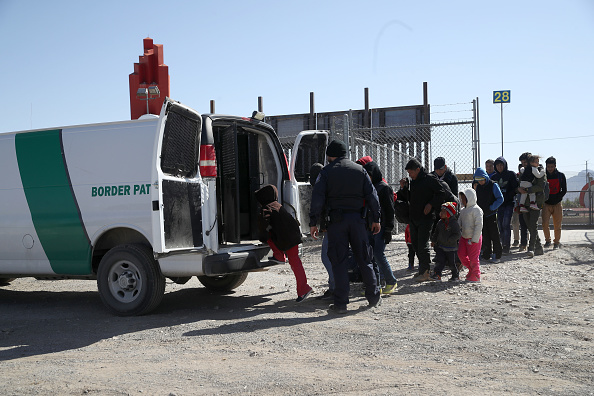
AUSTIN (WBAP/KLIF News ) – A federal judge on Thursday temporarily blocked a new Texas law that would allow local and state law enforcement to arrest, detain and deport those who are suspected of entering the United States illegally.
The development hands a victory to the Biden administration amid it’s battle with Governor Greg Abbott of immigration enforcement.
Senate Bill 4 has sparked fierce debate within the Texas political landscape. Governor Abbott has defended the law against critics who say it leads to racial profiling among authorities.
“They’re not profiling. They are seeing it with their own eyes…people who are violating the law,” he said during a trip to the southern border last year.
Democrat State Representative Victoria Neave of Dallas said the law adds more work for police who are dealing with major crimes.
“They don’t have the time to focus on checking on whether folks are here with papers or not,” she said during a discussion at the state capitol in Austin last year.
The preliminary injunction granted by U.S. District Judge David Ezra pauses a law that was set to take effect March 5.
Ezra cited the Constitution’s supremacy clause and U.S. Supreme Court decisions as factors that contributed to his ruling. He said the Texas law would conflict with federal immigration law, and the nation’s foreign relations and treaty obligations.
Allowing Texas to “permanently supersede federal directives” due to a so-called invasion would “amount to nullification of federal law and authority — a notion that is antithetical to the Constitution and has been unequivocally rejected by federal courts since the Civil War,” the judge wrote.
Citing the Supreme Court’s decision on the Arizona law, Ezra wrote that the Texas law was preempted, and he struck down state officials’ claims that large numbers of illegal border crossings constituted an “invasion.”
The lawsuit is among several legal battles between Texas and Biden’s administration over how far the state can go to try to prevent migrants from crossing the border.
The measure would allow state law enforcement officers to arrest people suspected of entering the country illegally. Once in custody, they could agree to a Texas judge’s order to leave the country or face a misdemeanor charge for entering the U.S. illegally. Migrants who don’t leave after being ordered to do so could be arrested again and charged with a more serious felony.
At a Feb. 15 hearing, Ezra expressed skepticism as the state pleaded its case for what is known as Senate Bill 4. He also said he was somewhat sympathetic to the concerns expressed by Abbott and other state officials about the large number of illegal crossings.
Ezra, who was appointed by former President Ronald Reagan, said he feared the United States could become a confederation of states enforcing their own immigration laws. “That is the same thing the Civil War said you can’t do,” Ezra told the attorneys.
Republicans who back the law have said it would not target immigrants already living in the U.S. because of the two-year statute of limitations on the illegal entry charge and would be enforced only along the state’s border with Mexico. Critics have fiercely disputed that.
Tensions have remained high between Texas and the Biden administration this year over who can patrol the border and how. Other GOP governors have expressed support for Abbott, who has said the federal government is not doing enough to enforce immigration laws.
Among other things, Texas placed a floating barrier in the Rio Grande, put razor wire along the U.S.-Mexico border and stopped Border Patrol agents from accessing a riverfront park in Eagle Pass that they previously used to process migrants.
The ruling comes the same day that President Joe Biden and his likely Republican challenger in November, former President Donald Trump, are visiting the southern border to discuss immigration.
Biden will with meet with local law enforcement and border patrol in Brownsville. Trump will be 300 miles away in Eagle Pass.
Texas officials are expected to appeal.
Copyright 2023. Associated Press. All Rights Reserved. WBAP News contributed to this article.




